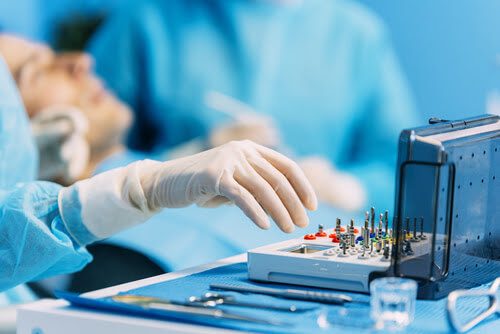Do you remember those anxious moments when you lost your baby tooth? Or when you were either angry or happy with the dentist when they needed to extract one. Later, though, you thanked them for helping you with that painful problem.
When you earn a Doctor of Dental Medicine (DMD) degree, you are responsible for your patient’s oral health and proficient in many advanced dental procedures.
If you are considering such a career, you probably have some questions and doubts. Hopefully, you will find at least a few of the answers below!
What Does a Doctor of Dental Medicine Do?
A dentist is a medical practitioner who maintains oral health. Dentists diagnose mouth conditions, check for cavities and fractures, and remove harmful pathogens. They always emphasize that tooth and gum health is essential as the mouth is the gateway to the digestive system. Simply put, dental care benefits your overall health.
Aside from ensuring that patients enjoy dentistry’s health benefits, those doctors are also concerned with aesthetics. They use braces and retainers to make your teeth straight, use Amalgam (silver), composite plastic resins, or porcelain for fillings, and take care of their patient’s routine checkups. They will give you great advice about taking care of your teeth on a daily basis.
Moreover, many dentists who hold a DMD degree conduct actual clinical practice and are highly proficient in specialized dental procedures like oral surgery or orthodontics.
What Is the Difference between a DDS and a DMD Degree?
When people are looking for a dentist, they may notice that while most of the specialists are listed with a DDS degree, some may be listed as DMD. You might wonder whether there is a difference between the two, but actually, they mean the same thing. Both DDS and DDM indicate that a dentist graduated from an accredited dental school.
The DDS (Doctor of Dental Surgery) and DMD (Doctor of Medicine in Dentistry or Doctor of Dental Medicine) are the same degrees but with different descriptions, depending on the institution.
Dentists who have a DMD or DDS acquire the same education and practical knowledge. It is up to the universities and colleges to determine what is the name of the degree awarded, but both use the same curriculum requirements.
If you’re looking for dental programs both degrees will bring you the same experience. If you can’t find a dental school with a DMD program in your area, look for one with DDS, and vice-versa.
What Sort of Accreditation Should I Look For in a Dental School?
The Commission on Dental Accreditation (CODA), organized by the American Dental Association (ADA), accredits all dental schools in the United States. CODA regulates the accreditation of both Doctor of Dental Medicine (DMD) and Doctor of Dental Surgery (DDS) degrees.
How Do I Earn My DMD Degree?
Dental schools accept any 4-year bachelor graduate with prerequisite courses in Biology, and Chemistry (both organic and general) with required lab time.
Once you have all these academic credentials, you can take the Dental Admission Test (DAT) sponsored by the American Dental Association. DAT is a computer-standardized test with a $460 non-refundable fee. After you pass the DAT, you can apply to any dental school in the US.
You have to wait 90 days before your DAT attempts, and if you happen to fail three times you have to apply for permission to try again. If this happens, re-tests are allowed only once per year.
Don’t get confused about choosing either a DMD or DDS degree. Both professional doctorate titles lead to generally the same practice in dentistry. Historically, “DDS” has been the term used in dental schools, but some universities insist on using “DMD” instead, in order to highlight the role of dentistry in the medical field. Therefore, it is up to a particular dental school which title they want to award their graduates with.
DMD programs last for at least four years or a total of 8 years for students who start without a bachelor’s degree. Courses during the first two years include general and dental sciences. The next two years, or possibly the next few more, are allocated for specialization training. Aside from the required clinical hours, DMD students also need to write a thesis and submit it in the final year.
When you learn the basics that every DDS or DMD student must know, you need to choose one of the following specializations:
- pediatric dentistry – Need a pediatric dentist Purcellville, call Treasured Smiles Pediatric Dentistry.
- general dentistry
- endodontics
- oral and maxillofacial surgery
- orthodontology
- periodontology
- cosmetic dentistry
- restorative dentistry
- preventive dental health
Choosing a field of specialization is crucial because it will determine your career path as a dentist. For instance, a general dentist cannot perform surgery; only “oral surgeons” who have in-depth training can do that.
What are the Typical Requirements for a DMD Degree Applicant?
Dental schools consider a lot of factors when deciding which applicants to accept into their programs. Many schools use a holistic review, which includes biographical and demographic information along with GPAs, test (DAT) scores, and extracurricular activities, to name a few.
DMD (or DDS) is a degree that has a few more requirements than others, due to the complexity and a wide range of skills needed for the job. Below, you will find the list of the most common requirements for this particular degree.
Pre-dental Education: Minimum of three years completed at the time of application.
Pass/No Pass: Admissions requirements taken for P/NP credit usually won’t fulfill the school’s requirements.
Advanced Placement and International Baccalaureate: Even though typically actual coursework is preferred, applicants sometimes can use AP or IB credit toward the fulfillment of the course requirements. AP and IB courses should be accepted only if credit is assigned to a specific and related course.
Grade Point Average (GPA): Most universities recommend that you have a minimum of 3.0 in both your overall GPA and the required science/BCP (Biology, Chemistry, and Physics) GPA.
Degree Requirement: Some schools might not require a BA or BS degree for admission, but it is highly recommended that you plan to get your bachelor’s degree prior to attending a DMD course.
When you fulfill all of those requirements, you are most likely to get into a course and become an expert in dentistry in the future. The requirements will, of course, vary between schools, so make sure to double-check that you are eligible for admission before you sign up.
You must have heard about the importance of good grades and test scores, but most successful candidates for admission demonstrate not only academic potential but also show through their actions and experiences that they are motivated, compassionate, and have the potential to be caring and ethical health care providers.
As you probably know from your personal experience, the best doctors are not only competent and effective in their treatments but also have an emphatic, positive approach to a patient. So, you should try to become one like this, too!
What Type of Degree Do I Need to Pursue Research or Educate Others in Dentistry?
If you have a DMD or DDS degree, you can teach in dental schools. If you want to engage in dental research a bit further, we recommend getting a PhD in Dentistry and finding a program that suits your interests. This way, your research can contribute to the betterment of the whole community.
Moreover, you can also become a dental scholar who regularly contributes academic articles to various journals. By doing research in the field of dentistry, you will help to develop new methods and tools to help patients more effectively and with as little pain as possible!
What Kind of Career and Salary Can I Expect with my DMD Degree?
After graduating with a DMD degree and passing the licensing exam, you are officially a dentist. You can either work in a large hospital, or a clinic or set up your own business.
According to the Bureau of Labor Statistics, dentists have an annual median salary of $159,530 per year. The wage varies on the location and experience of the dentist.
Do I Need a License to Be a Dentist?
After earning your DMD or DDS degree, you need to take the National Board Dental Examination (NBDE) administered by the ADA Joint Commission on National Dental Examinations (JCNDE). NBDE may be taken in two parts. It is worth knowing that in some universities, students take the first part of the exam while in dental school.
Aside from getting licensed by NBDE, you may need to pass the clinical licensing examination governed by a state or regional clinical testing agency. This license depends on the state where you wish to continue your practice.
What Schools Offer Doctor of Dental Medicine Degrees?
Most DDM or DDS programs follow the didactic format, such as:
- The University of Alabama at Birmingham School of Dentistry in Birmingham, Alabama
- Midwestern University College of Dental Medicine in Glendale, Arizona
- Western University of Health Sciences College of Dental Medicine in Pomona, California
- Oregon Health and Science University School of Dentistry in Portland, Oregon
- Southern Illinois University School of Dental Medicine in Alton, Illinois
Additionally, there are many vocational schools and community colleges where you can start your dental education and transfer to a larger institution at a later time.
If you wish to study DMD online, consider enrolling in the Boston University Goldman School of Dental Medicine in Boston, Massachusetts. The university has some online courses that will fit into your dental curriculum.
However, due to its rigorous training and clinical practice requirements, full DDS or DMD programs are not available entirely online. Some schools give you the option to complete your coursework without attending a class at the university. Such programs tackle the theoretical and scientific side of the practice, but a dental school student is still required to fulfill practicum obligations.
It is understandable since a dentist needs to deal with patients in person, and nobody wants to be treated by a doctor who has no hands-on experience. Nonetheless, online courses provide you with the comfort of acquiring all the necessary theoretical knowledge at home and on your own time.
Best Doctor of Dental Medicine (DMD) Schools
UNIVERSITY OF ALABAMA AT BIRMINGHAM
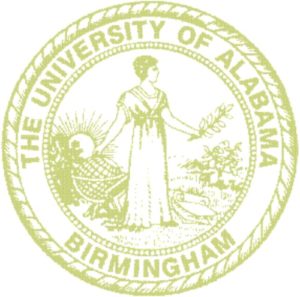
DOCTOR OF MEDICINE IN DENTISTRY (D.M.D.)
School Highlights: The University of Alabama at Birmingham provides several distinctive approaches to the acquisition of a Doctor of Medicine in Dentistry. Students can enroll in the D.M.D. as is and earn a well-respected general degree.
However, there is also a D.M.D/Ph.D. curriculum (which is geared strongly toward research), as well as a D.M.D/M.B.A program for individuals more interested in the business side of dentistry. Despite a student’s program of choice, the doctoral coursework includes fascinating course topics in various areas.
There is an emphasis on the independent practice of dentistry preparation through challenging clinical experiences. Students gain invaluable experience in noninvasive interventions, compassionate care, and treatment planning.
Coursework Sample:
- Oral Microbiology/Immunology
- Preclinical Dentistry
- Dental Anesthesia
Campus Location: Tuscaloosa, AL
Accreditation:
- Higher Learning Commission
- American Dental Association
Acceptance Rate: 89% Retention Rate: 84% Graduation Rate: 63%
LEARN MORE ABOUT THE UNIVERSITY OF ALABAMA AT BIRMINGHAM’S DOCTOR OF MEDICINE IN DENTISTRY (D.M.D.)
MIDWESTERN UNIVERSITY
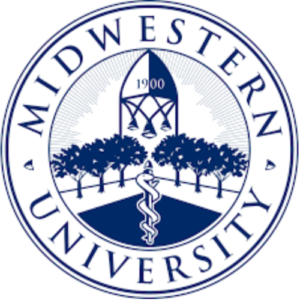
DOCTOR OF DENTAL MEDICINE (D.M.D.)
School Highlights: Midwestern University designed the Doctor of Dental Medicine based on theories of mutual respect and humanistic culture. There is a strong curricular focus on general dentistry and preparation for licensure. Students undergo extensive projects that emphasize professionalism, teamwork, and hands-on experiences.
Many classes are practice-oriented and give students excellent experience working directly with patients. It is a four-year degree that supports about 140 students each year and maintains a phenomenal graduation rate of 100%. Graduates are exceedingly well-prepared to enter the workforce as competitive, competent, and confident clinicians.
They go on to make an impressive impact on the dental medicine industry. Many have obtained positions of employment in education, administration, and public health services.
Coursework Sample:
- Basic, Behavioral, and Clinical Didactic Sciences
- Community Clinical Rotations
- Hands-On Practical Clinical Dentistry
Campus Location: Glendale, AZ
Accreditation:
- Higher Learning Commission
- American Dental Association
Acceptance Rate: 70% Retention Rate: 97% Graduation Rate: 93%
LEARN MORE ABOUT MIDWESTERN UNIVERSITY’S DOCTOR OF DENTAL MEDICINE
WESTERN UNIVERSITY OF HEALTH SCIENCES
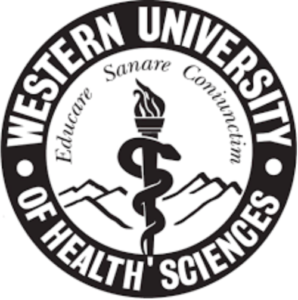
DOCTOR OF DENTAL MEDICINE (DMD)
School Highlights: The Western University of Health Science College of Dental Medicine is committed to providing a nurturing, high-quality Doctor of Dental Medicine (DMD). It is an excellent program for a wide variety of individual pursuits, from community service to private practice to education.
The four-year curriculum emphasizes sensitive, humane, and technically competent healthcare delivery. WUHS operates brand-new facilities outfitted with the most up-to-date tools and dental machinery in the industry. It is a small, private school that is entirely dedicated to healthcare education and is staffed by brilliant doctors and researchers.
Students also have access to exciting opportunities like early clinical training, student clubs, and outstanding support services.
Coursework Sample:
- Musculoskeletal System
- Behavioral Science and Dentistry
- Blood and Lymphatic System
Campus Location: Lebanon, OR
Accreditation:
- Western Association of Schools and Colleges
- American Dental Association
Acceptance Rate: 8% Retention Rate: 71% Graduation Rate: 95%
LEARN MORE ABOUT WESTERN UNIVERSITY OF HEALTH SCIENCES DOCTOR OF DENTAL MEDICINE (DMD)
OREGON HEALTH AND SCIENCE UNIVERSITY

DOCTOR OF DENTAL MEDICINE DEGREE (D.M.D.)
School Highlights: Oregon Health & Sciences University is one of the most highly celebrated healthcare education institutions in the country and is well-known across the entire globe. The School of Dentistry has been educating students since 1839.
Today, it provides a doctoral program built on nearly 200 years of education and research in dental care and surgery. It is a comparatively small program that enrolls 75 students, and it can be completed in just under two years. The curriculum puts a strong emphasis on diagnostic, technical, and treatment planning skills as well as the prevention of dental diseases.
Students work directly with patients from the start and gain an enormous amount of clinical experience under the close supervision of internationally renowned faculty members. Graduates of the degree are extraordinarily well-connected and enormously respected.
Coursework Sample:
- Cadaveric Gross Anatomy
- Endodontology
- Operative Dentistry
Campus Location: Portland, OR
Accreditation:
- Northwest Commission on Colleges and Universities
Acceptance Rate: 4% Retention Rate: 92% Graduation Rate: 87%
LEARN MORE ABOUT OHSU’S DOCTOR OF DENTAL MEDICINE DEGREE (D.M.D.)
SOUTHERN ILLINOIS UNIVERSITY
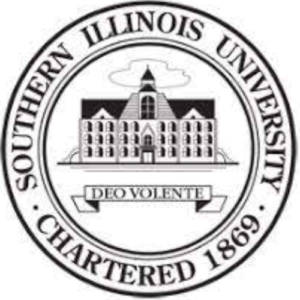
INTERNATIONAL ADVANCED PLACEMENT DOCTOR OF DENTAL MEDICINE PROGRAM
School Highlights: Doctor of Dental Medicine students at Southern Illinois University engage with a highly diverse cohort from all across the world who bring a rich amount of experience and knowledge to the classroom.
The curriculum supplies numerous elective options that allow students to focus their coursework toward a specific dentistry goal, such as surgery or dental diseases. This particular program aims to train and prepare SIU students to “become the best general practitioners in the country.”
It is a four-year degree that encourages interaction and teamwork among students and faculty. Graduates have historically maintained an outstanding pass rate on National Board Dental Exams and go on to make names for themselves as phenomenal dental practitioners of all specializations.
Coursework Sample:
- Cariology, Community, & Preventative Dentistry
- Dental Morphology
- Endocrine and Reproductive Systems
Campus Location: Carbondale, IL
Accreditation:
- Higher Learning Commission
- American Dental Association
Acceptance Rate: 95% Retention Rate: 75% Graduation Rate: 49%
LEARN MORE ABOUT SOUTHERN ILLINOIS UNIVERSITY’S IAPP DOCTOR OF DENTAL MEDICINE PROGRAM
Final Thoughts
DMD is an excellent educational path when you wish to help other people smile. It is a challenging and rewarding course that will enable you to acquire a range of skills and knowledge. There are plenty of requirements and lessons to learn throughout the course, but once you are a DMD graduate, you will have a long and rewarding career ahead of you, both financially and professionally.
You can either become a regular dentist working in a local clinic and help people ease their pain daily or devote yourself to dentistry research and contribute to the development of this medical field. The choice is yours!
